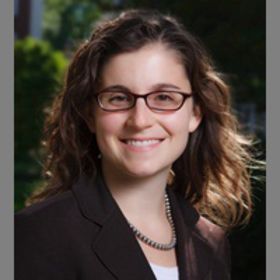Impact Stories
Discovery Process
Caitlin Rosenthal
“My time at HBS made me more interested in how history can reshape the way business people think about their roles and responsibilities.”
I have participated in all kinds of interdisciplinary seminars, and I have a degree in an interdisciplinary field, but HBS was the most interdisciplinary place I have ever experienced. Never have I had so many conversations with scholars asking different questions and using different methods. Sometimes this diversity led to misunderstandings, but also to new ideas and opportunities.
Spending a year immersed in this environment really broadened the audience I hope to reach with my research. My current book project explores the history of business practices on slave plantations in the American South and the British West Indies. I describe how all kinds of sophisticated quantitative management practices thrived under the circumstances of slavery. Before my year at HBS, I thought of my audience as primarily one of professional historians. I was wary of connecting this long-ago history to current events. But my time at HBS made me more interested in how history can reshape the way business people think about their roles and responsibilities. And as I revise my manuscript to be published, I am now thinking about how to reach that audience.
Before graduate school I worked for McKinsey & Company as a management consultant, but I left consulting to study history because I wanted to understand how the economy I had been a part of had developed over time. HBS brought me back to that goal: using the past to help us understand the present.
This has been great for my teaching. After all, most students don’t go on to become historians. My classes attracted lots of students interested in business, finance, and entrepreneurship, and watching how MBAs engaged with historical material gave me more strategies for connecting with them. Even more importantly, my year at HBS shattered the myth that class discussion can only happen in small seminars. My course on the “History of American Capitalism” enrolled around 150 students, and we had lively discussions every day, something that kept both the students and me excited and engaged with the material.

